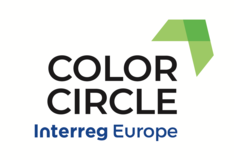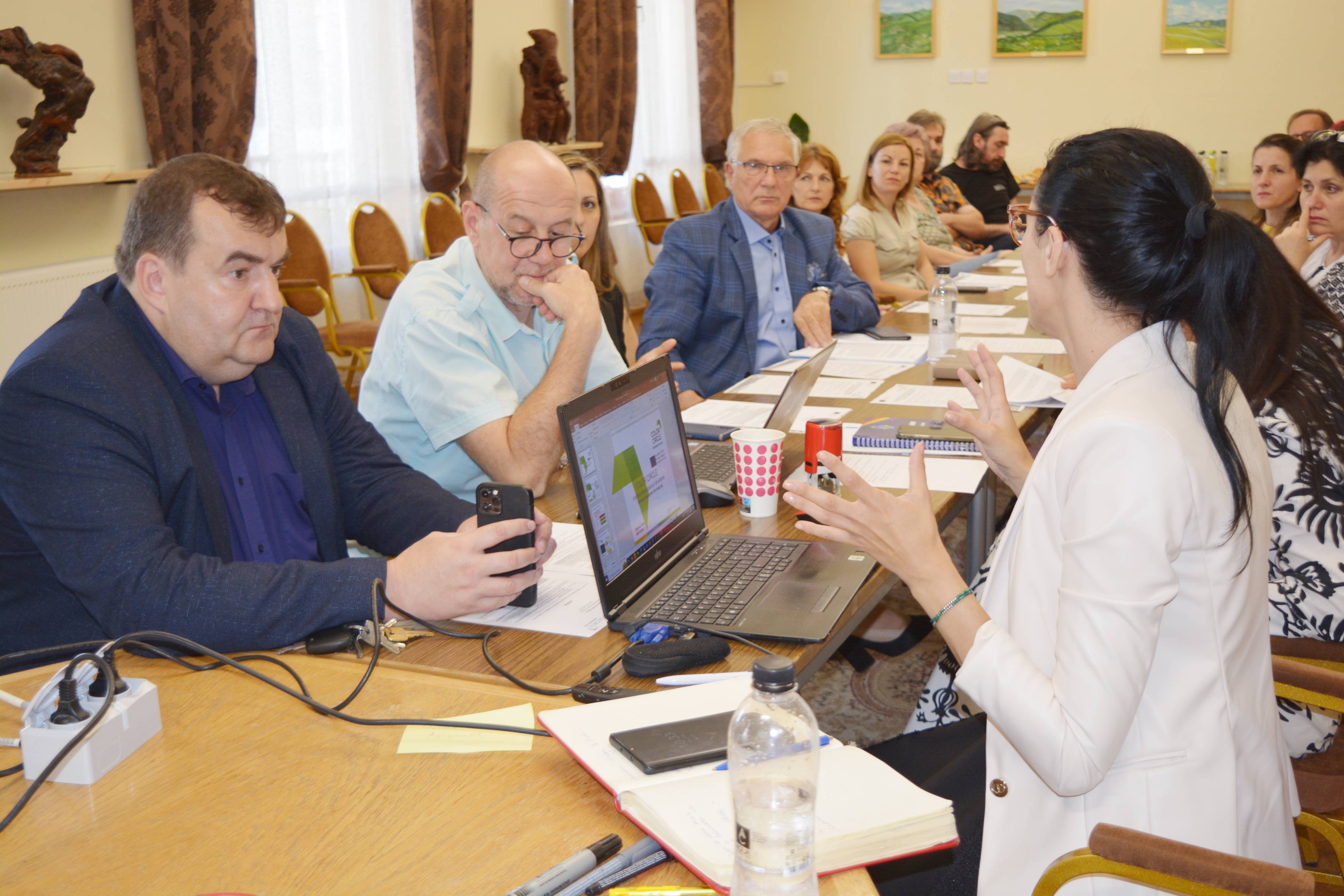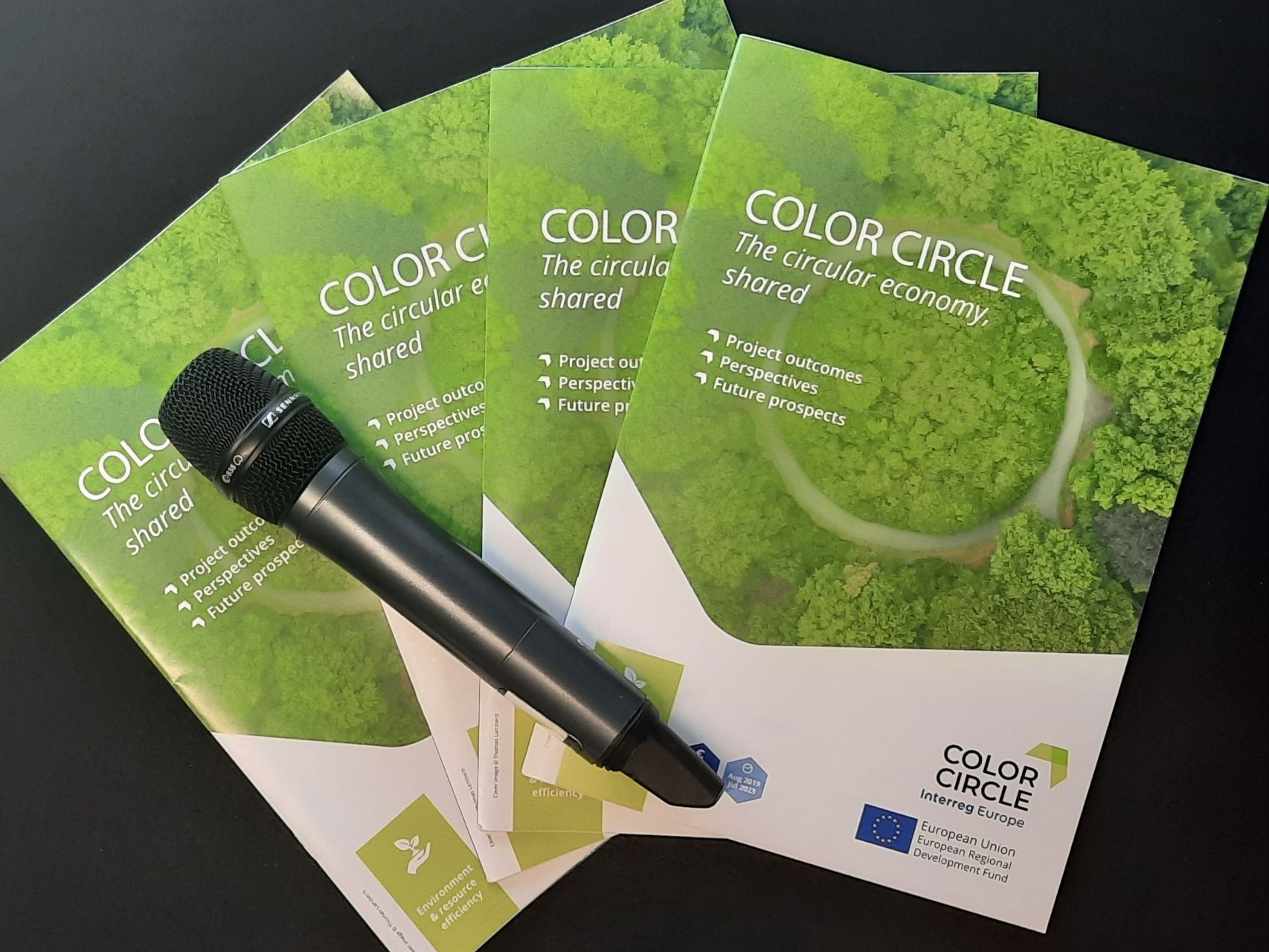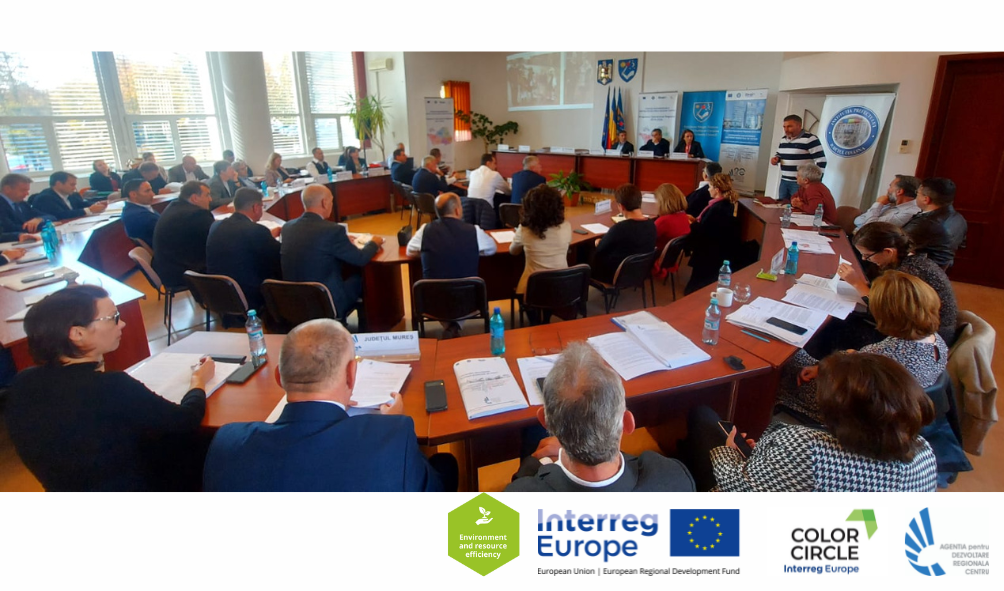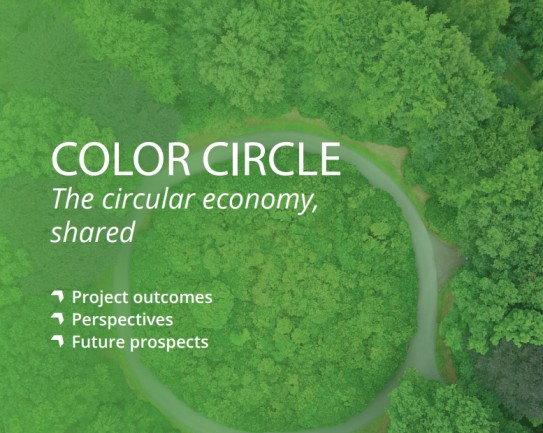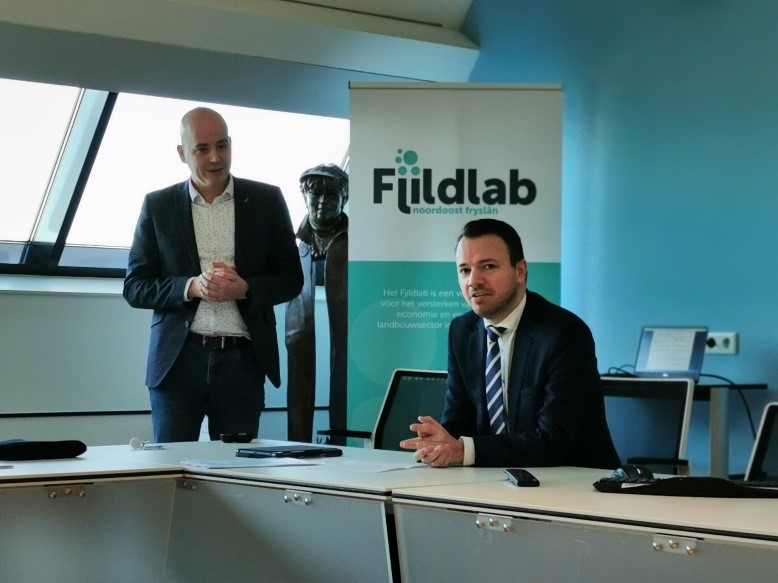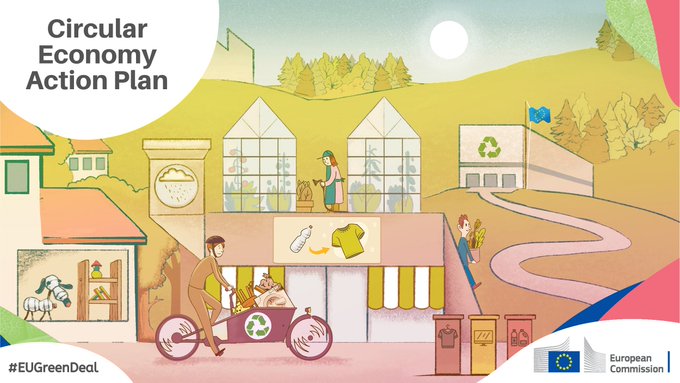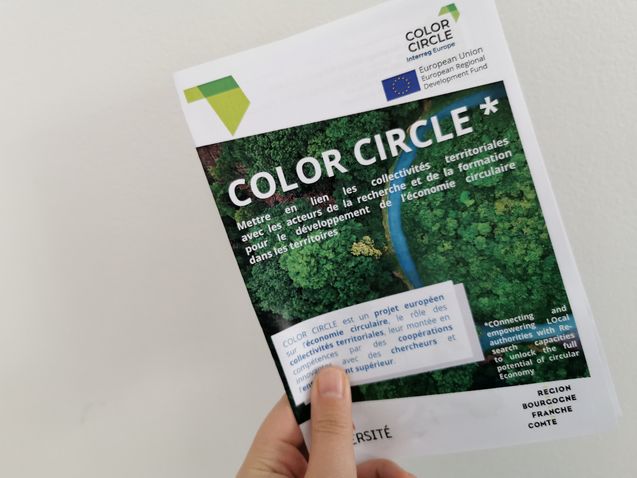Reaching the end of the project, we identified many changes happened in the policies of the partnership.
Bourgogne-Franche-Comté
COLOR CIRCLE was a tool for the Region to support research actors and local territories to connect. Due to the project, new circular economy projects have emerged using existing operational tools, such as the circular economy project booster. It facilitated projects holder’s access to existing regional tools and resources and successfully contributed to Bourgogne-Franche-Comté’s reflection on regional support modalities, in particular towards rural areas and actors, as well as local authorities that lack project engineering.
The Region inspired from various ideas introduced by the partners such as :
- Catalogue of construction waste and recycled products made by UCEEB, Czech Republic.
- Life wood for future project, Spain.
- Ciconia Consultores Ambientales - social awareness and training for companies for the transition to circularity -Spain.
- Plasticircle - Daniela BREAZU from Regional Development Agency Centru – Romania.
- Fjildlab, the Netherlands.
SIC
Under COLOR CIRCLE, the Central Bohemia Region and SIC noticed that the territory suffered from an insufficient awareness among small and medium-sized enterprises about the possibilities of CE and its benefits, such as financial savings or environmental protection. Therefore, since the Central Bohemia Region already provided expert services to SMEs through Central Bohemian Innovation Center (SIC), they widened the portfolio of these services by including a CE component. "Cirkulárka" appeared to be of interest for companies, as they can now optimise the use of resources or rely on newly opened market niches, for example. The good experience resulted in a similar programme for municipalities. In parallel, the CE or sustainability topic was more explicitly included in the “Research and Innovation Strategy for Smart Specialization of Central Bohemia”, known as RIS3 agenda.
The Central Bohemian Innovation Center relied on two good practices discovered under COLOR CIRCLE:
- Circular itineraries using biomimetic canvas (Spain): Service for SMEs supporting their uptake of circular economy principles.
- The circular economy project booster: a regional call for proposals to support local CE projects (France).
VHL
The Van Hall Larenstein University focused on supporting the agricultural sector transition from linear to circular economy. They therefore decided to implement two actions: a Contract for Ecoservices delivered in agricultural landscape and project vouchers to stimulate circular farming.
Vouchers were developed and made available in August 2022. In March 2023, lessons learned were discussed with the regional stakeholders and shared with the EU policy advisor of the province of Fryslan. The Area contract is a bottom-up area-oriented approach, in which the farmers make an offer to governments to contribute to the social tasks for the rural area. The initiative was presented on 22 November 2022 to all interested inhabitants of the region.
VHL relied on the circular economy project booster implemented by the Bourgogne-Franche-Comté (France) to shape its two actions.
RDA Centru
COLOR CIRCLE gave the opportunity to the Regional Development Agency Centru (PP5) to create 5 working groups on CE-related topics (WGs). The WGs are a tool to define regional needs. They prepared the implementation of the Open Innovation Platform, a strategic project developed under RP Centru, the policy instrument addressed within the project.
These working groups are inspired by the knowledge tables organised by the Van Hall Larenstein University around the Fjieldlab approach (University Van Hall Larenstein, the Netherlands).
The County Council of Granada
The County Council of Granada changed its policy by implementing two actions, “Puentes” and “Impronta Granada”.
“Puentes” supports the social and labour insertion of university students under 30, through specialised training and extracurricular practices in local sustainable development projects for municipalities, most of them at risk of depopulation. The initiative “Impronta Granada”, was created as an alliance between the University and the Provincial Council of Granada to deal with territorial challenges with the support of scientific knowledge. “Impronta Granada” has become a national pilot project to link the University with the implementation of Urban Agendas, with the support of the Ministry of Transports, Mobility and Urban Agenda. Besides, it has received a grant to implement a project about citizen science, in the framework of the call 2022 of the National Plan for Scientific, Technical and Innovation Research.
The County Council of Granada was influenced by two actions implemented by its partners, 1000 doctoral students for the territories (HESAM Université, France) and the Fjieldlab approach (the Van Hall Larenstein University, the Netherlands).
